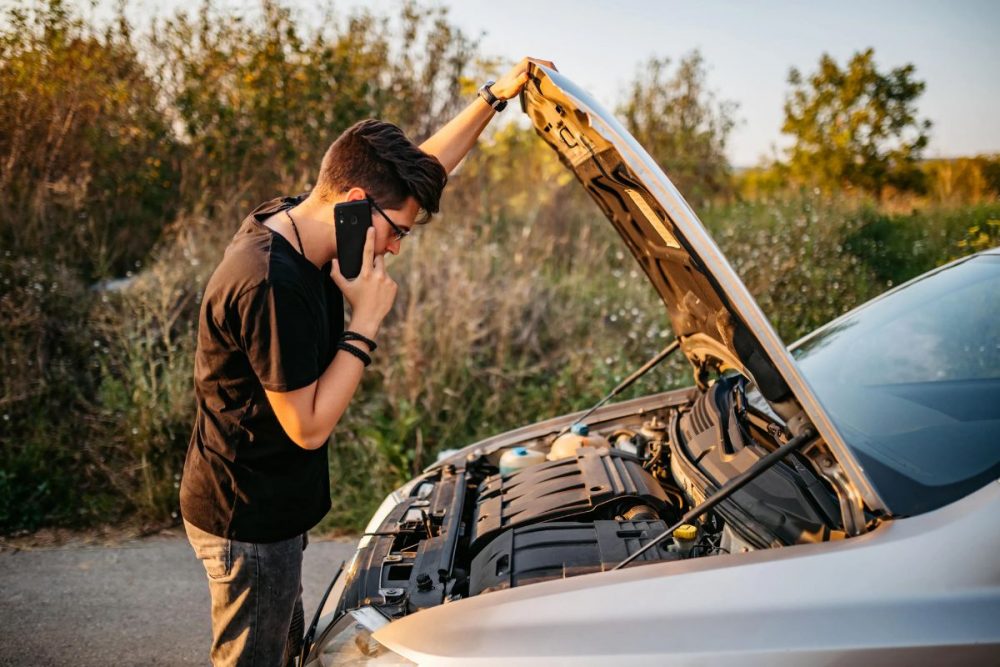Your automobile is an essential component of your daily schedule, not only transportation. Keeping it in good condition is vital if you use it for weekend excursions, school trips, or for work. Regular upkeep helps to avoid serious failure as well as enhance performance. If problems go on too long, something as complicated as cylinder head reconditioning might be required. Most challenges, however, begin with obvious, minor symptoms. Early detection can save you from expensive repairs later on. Most of the usual indicators that your car might be seeking some desperately needed maintenance are listed here. In this article, we’ll explain to you the most common signs that tell you your car needs more maintenance.
Dashboard Warning Lights
Pay close attention whenever a warning light appears. The dashboard of your car is somewhat like its communication system. It’s letting you know something is amiss if the check engine light, oil light, or brake warning comes up. Don’t suppose it’s a tiny problem. Though the automobile operates well, these lights may point toward more serious concerns. A flashing check engine light means it’s urgent. Get it checked as soon as you can. Though it might imply trouble with the engine, battery, or brakes, it can sometimes only be a simple sensor problem.
Odd Sounds While driving
One of the most obvious indicators that something is wrong is uncommon sounds. Ignorance of grinding brakes, screeching belts, or knocking from the engine shouldn’t happen. These noises might indicate fluid problems or worn-out parts.
A screech while you brake often indicates the brake pads are wearing out. A clicking sound when turning could indicate CV joint problems. A loud engine knocking might indicate worn engine parts or subpar combustion. Always pay for odd or unfamiliar noises. Usually, they don’t fade on their own.
Car Fluid Leaks
A puddle beneath the vehicle should not be overlooked. Liquids flowing out point at the fact that maintenance is required. Each fluid possesses a special odour and colour. An example is that engine oil is brown/black, coolant is often colored green/orange and transmission fluid red. Fluids that are colored or oily are a crimson flag though; they could be shaking as a result of wavy hoses, faulty seals or damaged parts. Fluid loss affects performance which may also be very damaging. Fast check on leaks.
Strange Smells Inside or Outside the Automobile
In case your car has a clear odour, it is a warning. A sweet smell may be a sign that there is a leak in coolant. Smell of the burning rubber may be an indication of a belt issue or even overheating. Sometimes when they smell like rotten eggs, it means there could be a problem with the exhaust or a bad catalyst converter. Moldy or moldy odors in the vehicle may indicate rotten truck carpets or clogged air conditioner vents. Note any strong or lasting aromas. Most scents point to a mechanical or electrical problem.
Reduced Fuel Efficiency
Your vehicle shakes or trembles while driving; something is incorrect. It could be your brakes, suspension, or tyres. A car that pulls to one side typically needs wheel alignment or new tires. Usually indicating warped rotors, shaking under braking, Vibrations in the steering wheel at great speeds could indicate an imbalance in the tire. The engine could be misfiring if the whole vehicle shakes while idling. Avoid driving with these symptoms. Often, they grow worse over time.
Decreased Fuel Efficiency
A checkup may be in order if your visits to the pump are more than usual. Often, bad fuel economy points to a problem. It might be something little like low tire pressure or something major like a defective oxygen sensor. Less mileage could also be a consequence of a clogged air filter, or fuel injectors. Check it when you have turned down your consumption of fuel but not your driving practice. Even the smallest of details is important. Outside and minor fixes might enhance gas efficiency as well as reduce emissions.
Difficulty Starting or Stalling
A vehicle which stops at random times or refuse to start easily needs checking. It can be a bad battery, faulty starter or fuel system challenges. The engine cranking slowly or producing an engine click may be the case of a battery that is about to die. Driving stalls are highly dangerous. It could entail power problems or fuel shortages. Sometimes it is just a soiled spark plug. Either way, do not disregard it. A reliable car should start quickly and run smoothly.
Conclusion:
Your vehicle tells you that it needs help. Do not wait until it gets broken down completely. The dashboard signals, strange sounds, leakages, odors, buzzing and such indicates- can prove a tip-off. Getting the car repaired early and also by making regular check ups keep your car longer and safer. Think of maintenance as an investment and not as a burden. The one that is frequently serviced can save on fuel, runs smoother and keeps you safe on the road. Have faith in your intuition. If something feels off, it probably is. Listen to your car.



